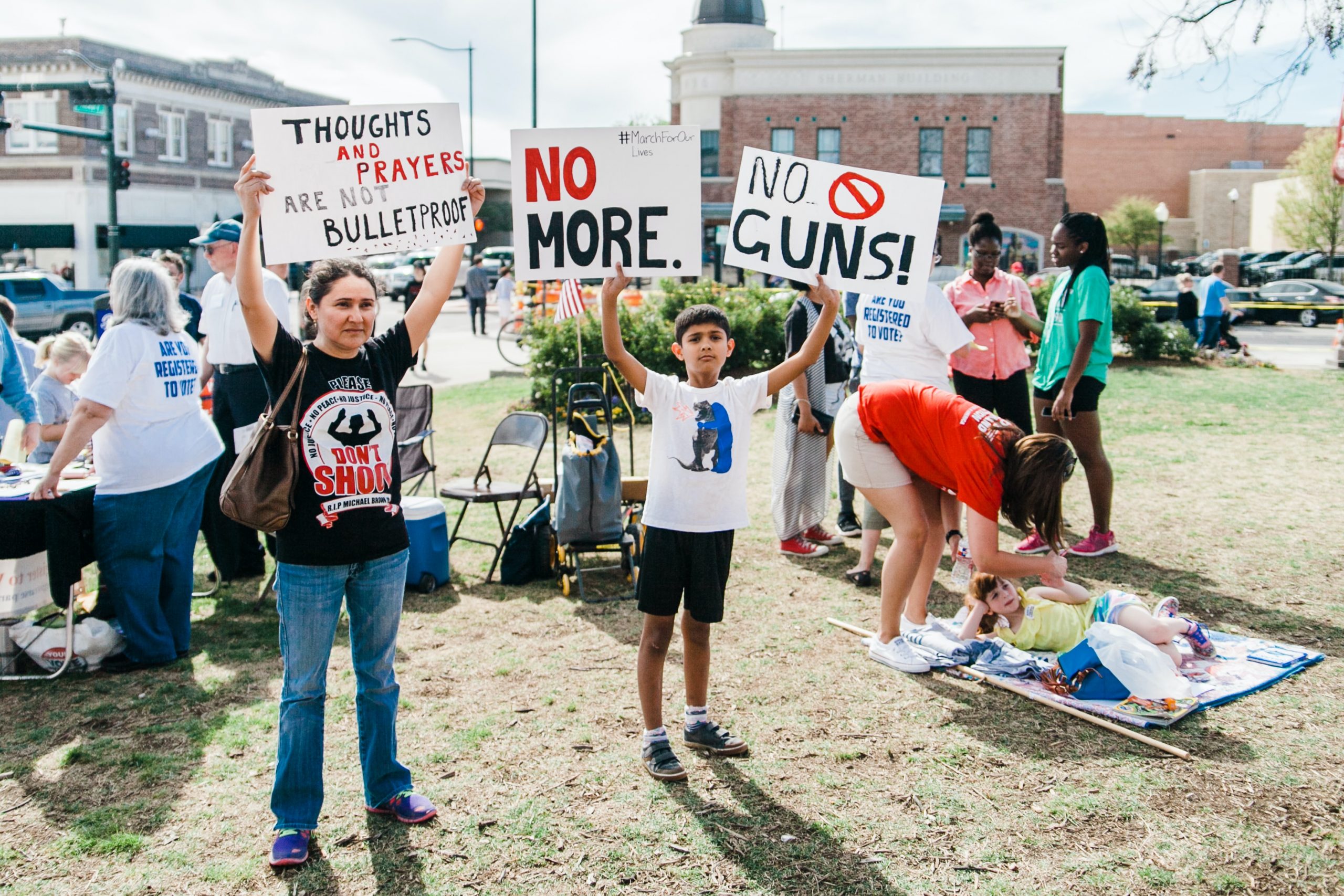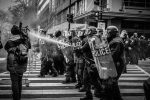As of May 10, NPR cited 194 mass shootings this year, which equates to 10 mass shootings a week on average in the United States. This number comes from the Gun Violence Archive’s tally, which, as NPR explains, defines a mass shooting as an incident in which four or more people are shot or killed, excluding the shooter.
This statistic seems impossible, but the Gun Violence Archive also reported 417 mass shootings in 2019, 336 mass shootings in 2018, 348 mass shootings in 2017, 382 mass shootings in 2016, and so on. This is not a new problem, and neither is the public outcry for a response to gun violence in the United States.
Interestingly, although mass shootings have remained a major problem for decades now, support for gun control has actually decreased due to the polarized nature of United States politics. As gun control became a topic that more people cared about, the Republican Party started to more strongly express its opposition. Gallup reports 78% support for stricter gun control in 1990, down to roughly 60% in 2004 and remaining somewhat steady since. Gun control has become a divisive issue since the media began covering mass shootings on a large scale. It can be argued that the polarization of the gun control debate began after the media coverage of the 1999 Columbine school shooting, but mass shootings started long before that.
Government Loyalty to NRA Lobbyists
Despite the fact that support for stricter gun control has remained at such a high level for so many years, why has the United States not been quick to respond, especially when American children are being murdered in their schools? The NRA has long been a major backer of the Republican Party and is considered by many to be an organization in support of freedom. It is interesting then that the NRA does not act to protect the freedom of children to go to school without being murdered.
In response to outcries after some of the first mass shootings in schools, the NRA “suggested adding armed security guards to schools.” How can we expect these armed guards not to act against students in the same way that police officers act against Black men walking down the street? The answer to school shootings is not to introduce guns to schools: There are many other problems with this recommendation, including the prospect of a gun being taken by a student, and the psychological effects of children trying to learn in a militarized environment.
The NRA, however problematic it may seem, will continue to influence government decisions, considering it remains one of the most influential and powerful lobbyist groups in the United States. Although the NRA is supposed to represent the viewpoints of gun owners, it seems to represent the viewpoints of those who produce guns instead.
The Atlantic’s 2012 analysis of the NRA argues that “the group bills itself as the voice of America’s gun owners, but it also has deep financial ties to the firearms industry.” The analysis continues, “Between [2005] and 2011, the Violence Policy Center estimates that the firearms industry donated as much as $38.9 million to the NRA’s coffers. The donors include 22 different gun makers, including famous names like Smith & Wesson, Beretta USA, SIGARMS, and Sturm, Ruger & Co. that also manufacture so-called assault weapons.”
While the organization claims to be independent of gun manufacturers, gun makers would not be donating large sums of money if the NRA did not continue to represent their interests. It seems that the millions of dollars that are being funneled into the NRA by manufacturers must be drowning out the cries of Americans in support of gun control.
Comparison to Other Governments’ Gun Control Laws
A CNN analysis of how other governments respond to mass shootings shines light on the responsiveness that exists in some countries. For example, CNN found that “Just weeks after the Christchurch mosque massacres in March, which left 50 dead, New Zealand’s parliament voted almost unanimously to ban military-style semi-automatic weapons.” In the U.K., the government “reacted [to a 1987 mass shooting] by banning semi-automatic and pump-action weapons. It also introduced new legislation which made it mandatory for shotgun owners to register their weapons.” The article presents many more examples of government responsiveness to post-shooting outcry.
The United States remains unresponsive despite the hundreds of mass shootings that happen annually, and the NRA does not seem like it will absolve corporate ties and advocate for the American public any time soon.
Possible Solutions
Advocating for government responsiveness is a whole different story, but here are some possible solutions to gun violence within the United States:
- Advocacy for more effective gun policy could prevent underaged Americans from getting their hands on guns.
- Advocacy for banning gun shows and making it harder for businesses to begin selling guns would decrease interactions where proper procedures are not followed.
- Advocating for policies that require training programs for those who are purchasing guns would foster more gun safety that could decrease accidents.
- Advocating for requiring guns to be registered alongside a purchaser would make it easier for crime investigators to trace where shooters are getting their guns, therefore discouraging the illegal selling of guns to those who could commit crimes.
- Advocacy for more limitations on the types of guns that Americans are legally able to handle (43 states still allow citizens to buy and handle automatic rifles).
The New York Times, and other sources, present countless forms of legislation that could prevent gun violence. For example, The New York Times calls for an elimination of restrictions on the funding of gun violence research, investment in smart gun technology, allowing doctors to ask children if there are guns in their households, etc.
The lax gun control laws in the United States do not represent the will of the people. The NRA has made its ties with the gun industry clear and continues to represent the will of the gun industry rather than the American public.

















